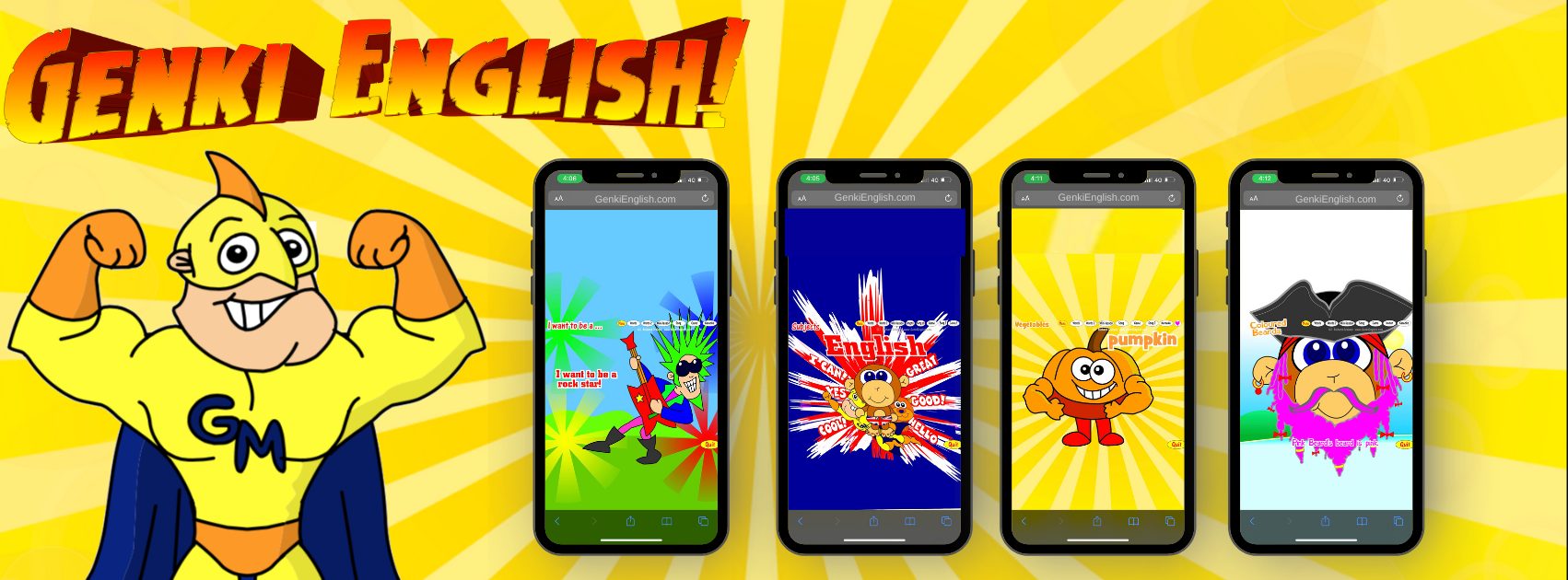Mirela wrote in to ask….
Hi, Richard! Happy to be in ‘direct’ contact with you.
I’ve been teaching adults for almost ten years now and there’s still something I haven’t figured out yet.
Here it is: correction when speaking – everyone wants to speak correct, good English, so I try to use materials that are from daily use of the language (words, expressions, etc.)-
My question is: when and how do I correct their speaking, do I interrupt them and correct them very often or I can just put down on a piece of paper their mistakes and then discuss them? Thank you for the effort of reading my question and for the willingness of answering it, too.
Hi Mirela,
This is one of the skills that takes a little time to get right. The trick is…
to correct students as often as possible, but stop before they get disheartened.
Needless to say, with some adults this can be very tricky, hence why we always recommend the regular Genki English first to build their self confidence!
What I would do is to really listen and see which mistakes are the most serious, put them in order of importance and try and correct those first when they come up.
Writing them down and then discussing them later is not usually a good idea as a) it will make the students terrified every time you move your pen (!) and b) they will probably have forgotten the mistake by the time you come back to it.
Patience is also really, really important. Very often we can hear things as clear as day, but they just can’t. So infinite patience from the teacher is often needed.
Plus … it’s a lot easier to correct things during games i.e be really strict on pronunciation if they want to get points. That tends to work really well!
Be genki,
Richard
P.S. Just one extra tip for those of you teaching children, I’d often be quite relaxed about mistakes that native speaker kids make. But …. always be really tough on mistakes that come from interference from their native language. This works really well in getting them fantastic accents!




Thanks for posting this. It is a question I get often.
I am not clear on your last point, though. Can you give an example of “being really tough on mistakes that come from interference from their native language”?
Things like adding vowels to the ends of words for Korean/Japanese students e.g. “doggu” instead of “dog”
Or the opposite problem for languages that miss off the ends of words e.g. “do” instead of “dog” in Thailand etc.
instead of saying that a particular st made a mistake, I often say that, “Lots of ss say this wrong, they say, “dumb” instead of (for example) “thumb”, did you know that dumb means “โง่”? If you want people to understand you, you must say, TH-umb…
If you say that just one st is wrong, you might make them lose face. That’s always a bad idea. It’s much better to talk about their pronunciation problems generally…”Some ss say this wrong, they say…, you must say, …, can you say it properly? …”
They want to speak clearly, but they cannot lose face. The trick is to fix their problems without making them look bad.
Hi Shawn,
I’d actually do the opposite! 🙂
If you train the kids to know they’ll never be picked on individually, they’ll learn to mumble and be quiet when they are not sure. Obviously we want the opposite! So rather than brushing the issue of embarrassment aside, I’d always recommend focussing on building the kids confidence up (using the GE lesson plans) so they can, and actively seek out, the teacher correcting them individually. This is always the sign of a good learner, and a really important skill to learn, plus the kids actually love it!
As you say though, I wouldn’t do it with that particular example you chose! 🙂
It’s also very interesting the Western concept of “face” Good old fashioned shyness and embarrassment (i.e. meaning we just need to teach more confidence skills) exist, but in modern Asia “face” is very much a Western construct – there is no word for it in Thai, nor Japanese for that matter!
Hi Richard,
I agree that it is important to ensure you help your students pronounce words as correctly as possible. I do help to correct my students, as and when they read to me on an one on one basis. However, as a group I often pick up on key words that are always tricky (for French kids). Example, Hot, Hospital etc (kids will say ‘ot and miss off the “h” – so we have fun practice as a group to say Ha,ho, hoh HOT potato. Then we all blow “Ho ho” to ensure we can feel our hot breath. Same with “THIS or THAT” and not “dis or dat”. Getting the kids to place their tongue between their teeth – hence the correct position to say the word always is fun. Lots of laughs but guess what, they all can say this words correctly! Very Genki!
Hi Richard
thanks for sharing this post. during the class I have two kinds of corrections. immediate and delayed. the first goes to pronunciation and mistakes in study part ,the second goes to mistakes in activation part. in warm up or engaging, there is no correction except pronunciation. I eagerly want to know your opinion about this method which is recommended by the trainers in my institute.
Hi Richard! Thank you for the issue you’ve proposed for discussion.
I agree with comments about delayed correction. The gentle one 🙂 always encourages students’ desire to converse and doesn’t kill the attempts of shy or not very confident students to talk. But… There are mistakes that have to be corrected immediately because they may be remembered as the right issue by another students because they learn from each other as well. Listening to ” wrong” pronunciation, grammar issue etc., kids learn and repeat the mistakes of their class or group mates. There’s a good way out: to be always positive with the correction so even those students that are not confident may follow your mime, expression on your face and may always be open to ask for a help their classmates and a teacher who is always a helper and an assistant with different creative “fishing rods” ( like echoing) that may lead to understanding and good relationships and finally shape correct language:)
According to my experience, when a student made some mistakes during speaking. I had to wait for them until he or she finished. And then I let this student gave self comment through a question: “How do you think about your presentation?”
If he/she failed to find out the mistakes, I would call other students to help them and correct their friend. This student had a chance to observe their friend and correct the speaking mistakes.
In case of all the students couldn’t, teachers let them listen the right words and repeat. Teacher can design more games which are related to the mistakes to improve the students’ speaking.